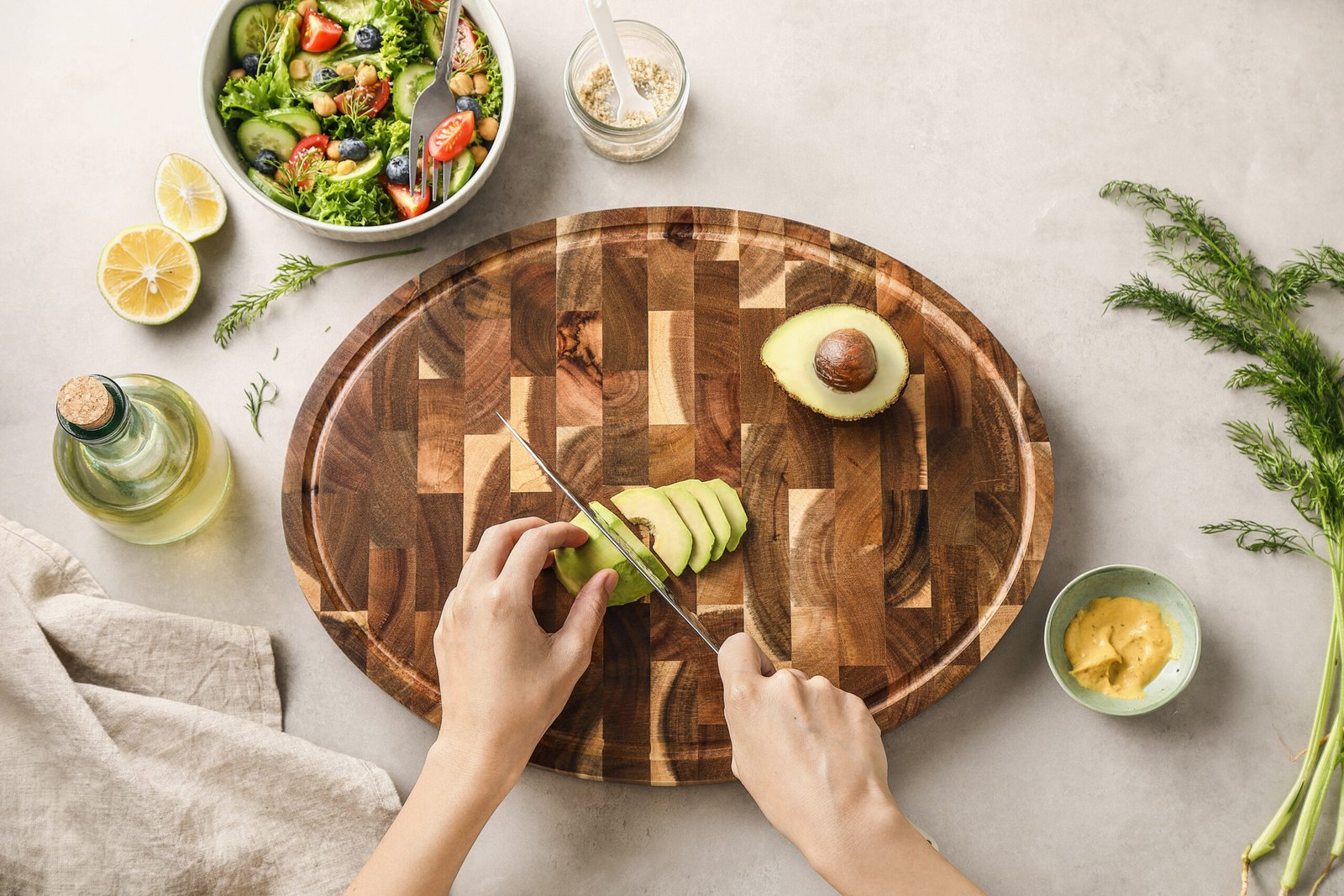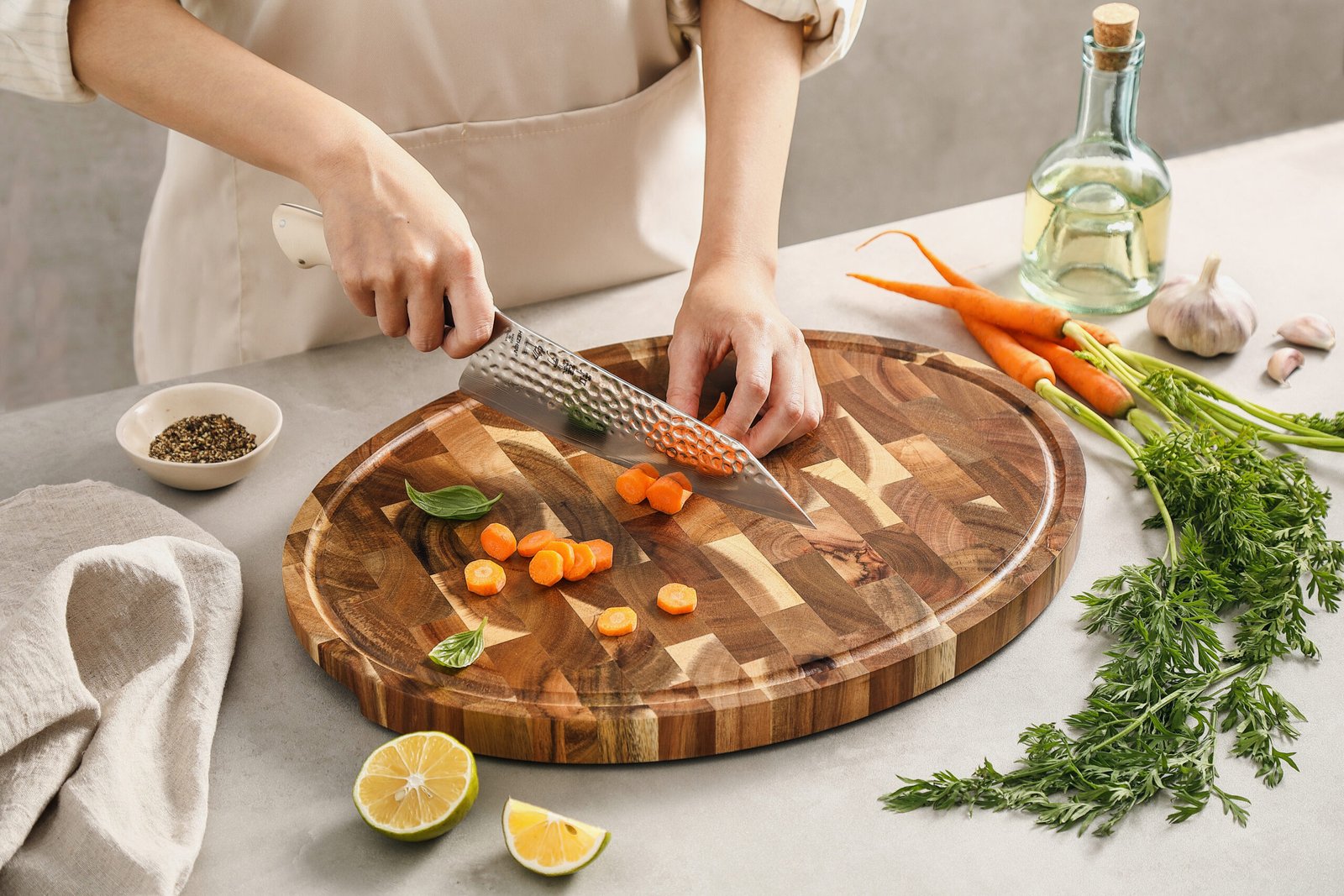







XHCB-XSM-03 Cutting Board
Wood cutting boards are flat surfaces made of wood that are used for chopping, slicing, and dicing food ingredients. They come in different shapes, sizes, materials, and constructions, such as end-grain, edge-grain, or face-grain. Some of the most common types of wood used for cutting boards are maple, walnut, cherry, teak, and acacia. Wood cutting boards have many advantages over other materials, such as plastic or glass. Wood is gentle on knives and does not dull them as quickly as harder surfaces. Wood also has natural antibacterial properties that can prevent cross-contamination and food poisoning. Wood cutting boards are also aesthetically pleasing and can add warmth and character to any kitchen. However, wood cutting boards also require proper care and maintenance to keep them in good condition and extend their lifespan. Wood cutting boards should be washed by hand with hot water and mild soap after each use, and dried thoroughly with a cloth or air-dried. They should not be soaked in water or put in the dishwasher, as this can cause them to warp, crack, or split. Wood cutting boards should also be oiled regularly with food-grade mineral oil or beeswax to prevent them from drying out and losing their natural color.

Acacia Wood
Wood cutting boards are flat surfaces made of wood that are used for chopping, slicing, and dicing food ingredients. They come in different shapes, sizes, materials, and constructions, such as end-grain, edge-grain, or face-grain. Some of the most common types of wood used for cutting boards are maple, walnut, cherry, teak, and acacia. Wood cutting boards have many advantages over other materials, such as plastic or glass. Wood is gentle on knives and does not dull them as quickly as harder surfaces. Wood also has natural antibacterial properties that can prevent cross-contamination and food poisoning. Wood cutting boards are also aesthetically pleasing and can add warmth and character to any kitchen. However, wood cutting boards also require proper care and maintenance to keep them in good condition and extend their lifespan. Wood cutting boards should be washed by hand with hot water and mild soap after each use, and dried thoroughly with a cloth or air-dried. They should not be soaked in water or put in the dishwasher, as this can cause them to warp, crack, or split. Wood cutting boards should also be oiled regularly with food-grade mineral oil or beeswax to prevent them from drying out and losing their natural color.

